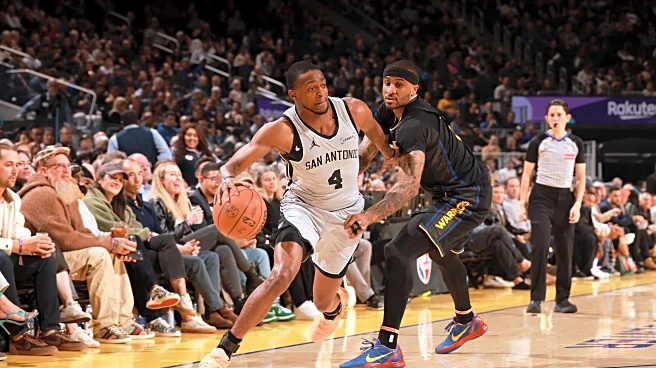What's Happening?
The Milwaukee Brewers are contemplating trade offers for their ace pitcher Freddy Peralta after being swept by the Los Angeles Dodgers in the National League Championship Series (NLCS). Despite a promising
season with 97 wins, the Brewers' performance in the NLCS was disappointing, leading to potential changes in their roster. Peralta, who has been a consistent performer with a career-best 2.70 ERA and 204 strikeouts this season, has one year remaining on his contract with an $8 million team option for 2026. The Brewers, known for their low payroll, are considering whether to retain Peralta or capitalize on his trade value.
Why It's Important?
The potential trade of Freddy Peralta could significantly impact the Brewers' strategy and performance in the upcoming season. As a key player, Peralta's departure might alter the team's pitching dynamics and overall competitiveness. For the Brewers, who operate with a lower payroll compared to teams like the Dodgers, trading Peralta could provide financial flexibility and opportunities to strengthen other areas of the team. However, losing a reliable pitcher could also pose challenges in maintaining their competitive edge in the league.
What's Next?
If the Brewers decide to trade Freddy Peralta, it could lead to a series of strategic moves aimed at restructuring the team for future success. The decision will likely involve evaluating offers from other teams and considering the long-term benefits of such a trade. Additionally, the Brewers may explore acquiring new talent to fill the void left by Peralta, potentially reshaping their roster to better compete in the next season.
Beyond the Headlines
The decision to trade Freddy Peralta highlights the business aspect of baseball, where financial considerations often influence team decisions. It underscores the challenges faced by smaller market teams like the Brewers in balancing talent retention with budget constraints. This situation also reflects the broader dynamics of player trades in Major League Baseball, where performance, contract terms, and team needs intersect.










